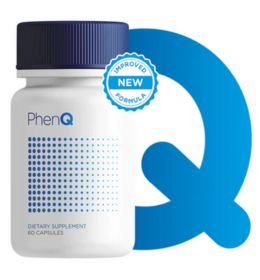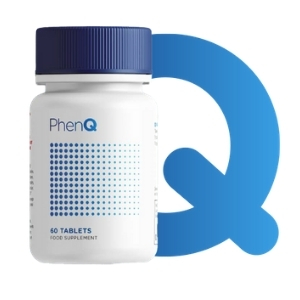Best Yogurt For Weight Loss: A Guide To Healthier Eating In 2024

Yogurt is an extremely healthy food that has been celebrated for centuries for its immense health benefits. It is rich in protein and may have probiotics, along with essential vitamins and minerals, making it a great addition to a balanced diet.
Yogurt’s versatility shines, as it can be a standalone snack, eaten as a healthy breakfast, or to enhance various dishes. To elevate, consider adding chia seeds to your yogurt or smoothies.
Besides being delicious and versatile, research shows that yogurt can also aid in weight loss.[1] But with so many types of yogurt available in the dairy aisle, which is the best yogurt for weight loss?
This article guides you through various yogurt choices and unveils the top options to boost your weight loss efforts. It also addresses the question, “How long does it take to lose weight?”
Which Yogurt Is Best For Weight Loss?
Certain yogurts are more suitable for weight loss, with many available that suit individual preferences and dietary requirements.
- Greek yogurt is popular due to its high protein content and presence of probiotics, promoting fullness, gut health, and muscle preservation.
- Kefir supports gut health and can aid in weight management.
- Icelandic yogurt is rich in protein and low in sugar, making it a favorable option.
- Low-fat/non-fat yogurt can be suitable for calorie-conscious diets.
- Plant-based yogurts offer dairy-free alternatives for vegans or those with lactose intolerance.
The key is to choose yogurts without added sugar and integrate them into a balanced diet.
Best Yogurt For Weight Loss

If you’re looking to shed those extra pounds, you may have pondered: which yogurt is the best for weight loss?
Featured Partner Offer

PhenQ
- Helps to burn fat
- Crushes food cravings
- Boosts energy and balances mood
- High-quality formula
Money Back Guarantee and Free US Shipping
Greek Yogurt
Greek yogurt, as a high protein yogurt, emerges as a standout choice, and not only for its delectable taste. It has a remarkable nutritional value and supports weight loss.
Its impressive protein content is one of the key attributes that sets it apart. Greek yogurt is substantially richer[2] in protein compared to plain yogurt. Protein is great for weight management as it promotes a feeling of fullness,[3] reducing the urge to snack.
Greek yogurt isn’t just a protein powerhouse; it’s also a low-carbohydrate option. This means it’s ideal if you’re seeking to manage your carbohydrate intake while pursuing weight loss. The lower carbohydrate content means it has a lower glycemic index, resulting in a slower and steadier release of energy. This can maintain blood sugar levels and prevent energy spikes and crashes, keeping cravings at bay.[4]
Greek yogurts are famous for their probiotic content, which promotes gut health and digestive well-being. A healthy gut is associated with better weight management[5] since it can influence how you process food and absorb nutrients. The probiotics in Greek yogurts support the balance of good bacteria in your gut, supporting digestion and cleansing of the colon.
Another great aspect of Greek yogurt is its versatility. It can be used in various dishes, from smoothies to parfaits, or as a substitute for sour cream in savory recipes. This flexibility allows you to incorporate it into your meals seamlessly, making it easier to stick to a balanced diet.
When considering the best Greek yogurt for weight loss, it’s important to opt for low-fat Greek yogurt with naturally occurring sugar. And instead of choosing whole milk yogurt varieties, choose those low-fat milk yogurt options to reduce calorie and fat content.
Kefir Yogurt
Kefir yogurt is a popular choice for its unique taste and remarkable nutritional value. They often come in drinkable yogurts, making them convenient for on-the-go snacks.
What sets kefir yogurt apart is its probiotic richness, which goes beyond that of traditional yogurt. This fermented yogurt contains live active cultures and is rich in beneficial bacteria and yeasts, making it a powerhouse for gut health. The probiotics in kefir yogurt can potentially support a healthier gut environment, aiding digestive processes and weight loss.[6]
Kefir yogurt also boasts a high protein content, making it an excellent option if you’re looking to shed pounds. Another compelling aspect of kefir yogurt is its lactose content. While some yogurts may be unsuitable for people with food sensitivities such as lactose intolerance, kefir yogurt is often better tolerated[7] due to its low lactose content. People with lactose sensitivities can enjoy the benefits of kefir yogurt without digestive discomfort.
Kefir yogurt’s tangy flavor and liquid consistency make it a versatile ingredient for smoothies, salad dressings, and marinades. This adaptability allows you to incorporate it into a wide range of dishes and beverages while pursuing weight loss goals.
Icelandic Yogurt
Icelandic yogurt, a hidden gem among yogurts, deserves recognition for its exceptional nutritional value and potential to support weight loss.
Low in carbohydrates and high in protein, Icelandic yogurt is ideal for managing your carbohydrate intake while focusing on weight loss. Icelandic yogurt also excels in probiotic content, supporting a healthier gut.
Icelandic yogurt’s rich and creamy texture can add a satisfying element to your meals and snacks. You can enjoy it with various toppings, such as fruits, nuts, and honey. It can also be added to savory dishes for added richness and protein, such as curries and pasta dishes.
Low-Fat/Non-Fat Yogurt
Low-fat and non-fat yogurts offer distinctive nutritional value and can be great allies in your weight loss journey.
One of the primary benefits of low-fat and non-fat yogurts is their reduced fat content. This results in fewer calories from fat, making them an attractive choice if you’re aiming to control your calorie intake. Weight management often refers to a simple equation: calories consumed versus calories expended. Opting for low-fat or non-fat yogurt can tip the scale in your favor. These varieties will help you enjoy the deliciousness of yogurt without the added calories from fat.
Low-fat and non-fat yogurts are rich sources of calcium and protein. Calcium is vital for strong bones and teeth and plays a role in muscle function and a healthy nervous system. These yogurt varieties are also generally lower in saturated fats since these yogurt brands are not generally made with whole milk, which benefits heart health.[8]
You can enhance their flavor with various healthy toppings such as fresh fruit, nuts, or a drizzle of honey.
Plant-Based Yogurt
Plant-based yogurts, a growing trend in the world of dairy alternatives, offer a diverse range of options with distinctive nutritional value. These are often made from[9] soy protein or soy protein isolate, although other protein sources are available.
First, let’s explore the various types of plant-based yogurts. Almond-based yogurts are rich in healthy fats, typically offering fewer calories than traditional dairy yogurts. Soy-based yogurts are known for their protein content, a vital weight-loss nutrient. Coconut-based yogurts deliver a unique tropical flavor while offering a rich source of healthy fats. Oat-based yogurts provide a creamy texture and are typically low in saturated fat and cholesterol. The variety of plant-based yogurt options allows you to select one that fits best with your dietary preferences.
Plant-based yogurts, as a whole, tend to be lower in calories and saturated fats compared to traditional dairy yogurts. Many are fortified with essential nutrients such as calcium and vitamins to rival their dairy counterparts. Plant-based yogurts often contain live and active cultures of good bacteria, supporting a healthy gut environment.
How Yogurt Can Help You Lose Weight

Whether dairy or plant-based, yogurt can be a valuable addition to your weight loss journey.
Yogurt is a notable source of protein, which plays a vital role in weight management. Protein enhances feelings of fullness and satiety, helping you to curb cravings. It also assists in the preservation of lean muscle mass during weight loss. It often takes two to four weeks to notice weight loss changes if you are losing at the rate of 1-2 lbs per week, a safe and sustainable rate of weight loss.
Choosing the healthiest yogurt, such as high-protein yogurt and low-fat Greek yogurt, tends to be lower in calories. Some yogurts, such as fruit-flavored yogurt, often contain added sugar and should be kept to a minimum.
Many yogurts contain probiotics, beneficial bacteria supporting a healthy gut microbiome. A balanced gut environment can influence how your body processes food and absorbs nutrients, potentially aiding digestion.
Yogurt offers a range of essential nutrients,[10] including calcium, zinc, and B vitamins. Incorporating yogurt into your diet can enhance nutrient intake while controlling calorie consumption. This balance ensures your body receives nourishment, even during a weight loss diet.
There are many ways to lose weight without hitting the gym, and eating healthier yogurts can be one way.
Best Time To Eat Yogurt For Weight Loss
The best time to eat yogurt for effective weight management is typically between meals as a high-protein snack. Yogurt can be excellent for curbing your appetite[11] and portion control, reducing the chance of overindulging during meals.
Yogurt’s nutritional profile also makes it a particularly advantageous post-workout option. After exercising, your body requires a source of protein to aid in muscle recovery and repair. Yogurt can be crucial in replenishing the amino acids necessary for rebuilding and strengthening muscles since it is a rich source of protein.
Eating yogurt daily as a snack or post-workout treat contributes to feeling full and supports your body’s protein needs.
Is Yogurt Good For Weight Loss?
Have you been struggling with how to lose weight? While yogurt can be nutritious and helpful, not all yogurts are equal — you have to know which ones to choose.
High Protein
First, look for higher protein yogurts, such as Greek yogurt and Icelandic yogurt. They’re great for weight loss since they can help you feel fuller for longer and prevent excess snacking between meals. Also, high-protein yogurts tend to have less added sugar, making them an overall diet-friendly option. When checking food labels, aim for yogurts with around 9 grams of protein for every 100 grams.
All Natural
Choose varieties that are as natural as possible, such as plain Greek yogurt. These yogurts are free from the added sugar and artificial ingredients often found in flavored yogurt.
Their simplicity not only makes them a nutritious choice but also allows you to customize the flavor to your taste. You can enhance the flavor of regular yogurt by adding fresh fruit, honey, or nuts.
Featured Partner Offer

Avoid Added Sugar And Sweeteners
Try to steer clear of flavored yogurt since they usually have added sugars.[12] They add calories and can spike blood sugar levels, which might lead to cravings. Also, try to avoid yogurts with sweeteners, as research has linked these with weight gain and increased calorie intake.[13]
Some fruits naturally contain less sugar than others, so if you prefer fruit-flavored yogurts, choose these fruits to control sugar intake. Lower-sugar fruits include citrus fruits and some berries, such as raspberries and strawberries. When looking at food labels, aim for yogurts with less than 5 grams of sugar per every 100 grams.
In general, choosing plain, regular yogurt with natural sugar over flavored yogurts with added sugars or artificial sweeteners is better for weight loss.
If you’re looking for the best yogurt for weight loss and gut health, consider low-fat Greek yogurt with live and active cultures. Live and active cultures in yogurt are beneficial bacteria that promote gut health. They can help maintain a healthy gut flora balance,[14] improve nutrient absorption,[15] and boost the immune system.[16]
Conclusion
Yogurt is a highly nutritious food that can aid in your weight loss journey. When it comes to selecting the best yogurt for weight loss, certain varieties are more beneficial than others.
High-protein yogurts are top contenders due to their high protein content, low sugar, and low-calorie nutritional profiles. Additionally, low-fat and non-fat yogurt options are good options for those trying to reduce their calorie intake. Plant-based yogurts, such as almond, soy, and coconut, are good dairy-free alternatives supporting weight loss goals. Be careful with flavored yogurts, especially if they have added sugar; these can slow down your progress.
Eating yogurt between meals or as a snack can help you feel fuller for longer, lowering your calorie intake. Furthermore, yogurt can aid in gut health and digestion, reducing cravings.
So, go ahead and add yogurt to your diet and reap its weight loss benefits.
Frequently Asked Questions
Yes, incorporating yogurt into your daily diet can support weight loss, especially if you choose low-fat or high-protein varieties. It helps with satiety and portion control, but overall calorie balance is crucial.
Greek yogurt alone doesn’t burn fat. However, it’s a good source of protein, which can aid in satiety and muscle maintenance. A balanced diet and exercise are essential for fat loss.
Eating only yogurt is not a sustainable or healthy weight loss approach. It lacks certain essential nutrients and may lead to nutrient deficiencies. A balanced diet with various foods and good hydration is essential for long-term weight loss and overall health.
A daily intake of one average serving of yogurt (6-8 ounces) is typically considered a healthy portion. However, individual dietary needs may vary, so adjust accordingly to meet your nutritional goals.
The French have a long history of yogurt consumption, partly due to its probiotic benefits and versatility in meals. Yogurt is often enjoyed as a dessert or snack and is appreciated for its benefits for digestion and nutritional value.
Resources
- Eales, J., Irène Lenoir-Wijnkoop, King, S., Wood, H., Kok, F.J., Shamir, R., Prentice, A.M., Edwards, M.R., Glanville, J. and Atkinson, R.L. (2015). Is consuming yoghurt associated with weight management outcomes? Results from a systematic review. International Journal of Obesity, [online] 40(5), pp.731–746. doi:https://doi.org/10.1038/ijo.2015.202.
- Usda.gov. (2023). FoodData Central. [online] Available at: https://fdc.nal.usda.gov/fdc-app.html#/food-details/2259794/nutrients.
- Leidy, H.J., Clifton, P., Astrup, A., Wycherley, T.P., Westerterp-Plantenga, M.S., Luscombe-Marsh, N.D., Woods, S.C. and Mattes, R.D. (2015). The role of protein in weight loss and maintenance. The American Journal of Clinical Nutrition, [online] 101(6), pp.1320S1329S. doi:https://doi.org/10.3945/ajcn.114.084038.
- Lennerz, B., Alsop, D.C., Holsen, L.M., Stern, E., Rojas, R., Ebbeling, C.B., Goldstein, J.M. and Ludwig, D.S. (2013). Effects of dietary glycemic index on brain regions related to reward and craving in men. The American Journal of Clinical Nutrition, [online] 98(3), pp.641–647. doi:https://doi.org/10.3945/ajcn.113.064113.
- Koutoukidis, D.A., Jebb, S.A., Zimmerman, M.C., Afolarin Otunla, Henry, J.A., Ferrey, A., Schofield, E., Kinton, J., Aveyard, P. and Marchesi, J.R. (2022). The association of weight loss with changes in the gut microbiota diversity, composition, and intestinal permeability: a systematic review and meta-analysis. Gut microbes, [online] 14(1). doi:https://doi.org/10.1080/19490976.2021.2020068.
- X.M. Tomé-Castro, Rodriguez‐Arrastia, M., Cardona, D.M., Rueda‐Ruzafa, L., Molina-Torres, G. and Román, P. (2021). Probiotics as a therapeutic strategy in obesity and overweight: a systematic review. Beneficial Microbes, [online] 12(1), pp.5–15. doi:https://doi.org/10.3920/bm2020.0111.
- Damiana Diniz Rosa, Maciel, M., Łukasz Grześkowiak, Aparecida, S., Lopes, L. and Maria (2017). Milk kefir: nutritional, microbiological and health benefits. Nutrition Research Reviews, [online] 30(1), pp.82–96. doi:https://doi.org/10.1017/s0954422416000275.
- Pradip Behare, Kumar, H. and Surajit De Mandal (2016). Yogurt: Yogurt Based Products. Elsevier eBooks, [online] pp.625–631. doi:https://doi.org/10.1016/b978-0-12-384947-2.00767-4.
- Usda.gov. (2023). FoodData Central. [online] Available at: https://fdc.nal.usda.gov/fdc-app.html#/food-details/2259793/nutrients.
- Ortinau, L., Hoertel, H.A., Douglas, S. and Leidy, H.J. (2014). Effects of high-protein vs. high- fat snacks on appetite control, satiety, and eating initiation in healthy women. Nutrition Journal, [online] 13(1). doi:https://doi.org/10.1186/1475-2891-13-97.
- Usda.gov. (2023). FoodData Central. [online] Available at: https://fdc.nal.usda.gov/fdc-app.html#/food-details/330415/nutrients.
- Pearlman, M., Obert, J. and Casey, L. (2017). The Association Between Artificial Sweeteners and Obesity. Current Gastroenterology Reports, [online] 19(12). doi:https://doi.org/10.1007/s11894-017-0602-9.
- Roy, C., Kurilshikov, A., Leeming, E.R., Visconti, A., Bowyer, R.C.E., Menni, C., Falchi, M., Koutníková, H., Veiga, P., Zhernakova, A., Derrien, M. and Spector, T.D. (2022). Yoghurt consumption is associated with changes in the composition of the human gut microbiome and metabolome. BMC Microbiology, [online] 22(1). doi:https://doi.org/10.1186/s12866-021-02364-2.
- Cornes, R., Sintes, C., Pena, A., Albin, S., O’Brien, K., Abrams, S.A. and Donangelo, C.M. (2022). Daily Intake of a Functional Synbiotic Yogurt Increases Calcium Absorption in Young Adult Women. Journal of Nutrition, [online] 152(7), pp.1647–1654. doi:https://doi.org/10.1093/jn/nxac088.
- Ashraf, R. and Shah, N.P. (2014). Immune System Stimulation by Probiotic Microorganisms. Critical Reviews in Food Science and Nutrition, [online] 54(7), pp.938–956. doi:https://doi.org/10.1080/10408398.2011.619671.
More from Weight Management
-

How To Drink Apple Cider Vinegar For Weight Loss In 1 Week In 2024
January 10, 2024
Taking apple cider vinegar has become a sensation for its supposed health benefits, despite its sour taste. Apple cider vinegar may…Read more -

How To Lose Belly Fat After 50: Here’s 10 Tips For People Over 50 To Try In 2024
December 27, 2023
Losing weight over 50 can feel challenging, especially in stubborn areas like the abdomen. As we age, hormonal changes, slower metabolism,…Read more -

How To Lose Weight With Hypothyroidism – 10 Ways You Should Try In 2024
December 22, 2023
Hypothyroidism[1] is a condition that occurs when a person has low levels of thyroid hormone, and it most often develops when…Read more -

Hypnosis For Weight Loss: Unlocking Your Mind’s Potential For Success 2024
December 20, 2023
You’ve heard about various methods and tools to achieve weight loss and you might have looked into how to get ozempic.…Read more

